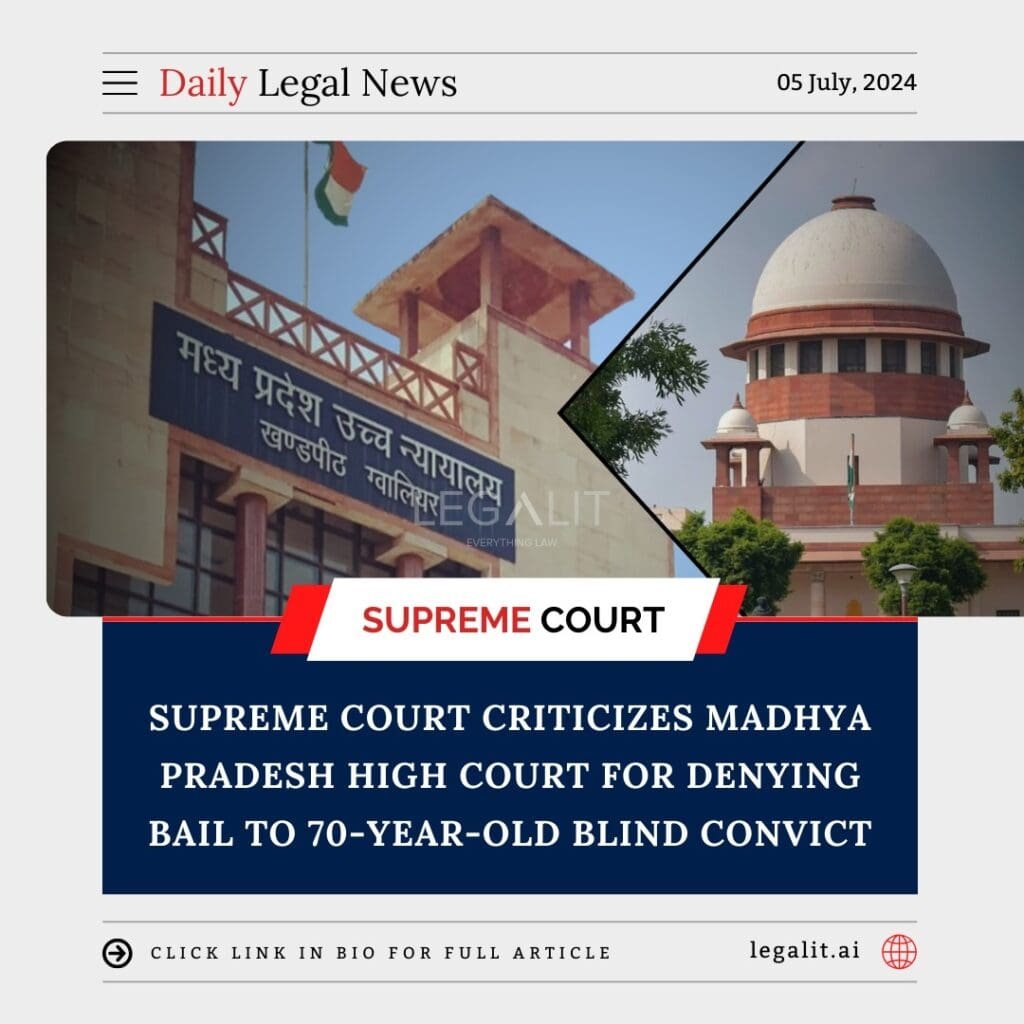
The Supreme Court recently pulled up the Madhya Pradesh High Court for refusing to grant bail to a 70-year-old blind convict. The apex court found the High Court’s decision to be inappropriate given the convict’s age and disability. The Supreme Court emphasized that judicial discretion should be exercised with empathy and consideration for the convict’s condition and the humanitarian grounds that necessitate a more lenient approach.
Key Points:
- Humanitarian Considerations:
- The Supreme Court underscored the importance of considering humanitarian aspects when deciding bail applications, especially for elderly and disabled individuals. The court noted that the convict’s blindness and advanced age should have been significant factors in the High Court’s decision-making process.
- Judicial Discretion:
- The ruling highlighted the necessity for trial courts to use judicial discretion judiciously, balancing legal principles with compassion. The Supreme Court pointed out that denying bail in such circumstances could be seen as overly harsh and unjust.
- Legal Precedents:
- The decision draws attention to existing legal frameworks and precedents that support granting bail on humanitarian grounds. The Supreme Court’s intervention in this case serves as a reminder for lower courts to align their judgments with broader principles of justice and human rights.
This decision by the Supreme Court not only provides relief to the 70-year-old convict but also sets a precedent for handling similar cases with greater sensitivity and fairness in the future.